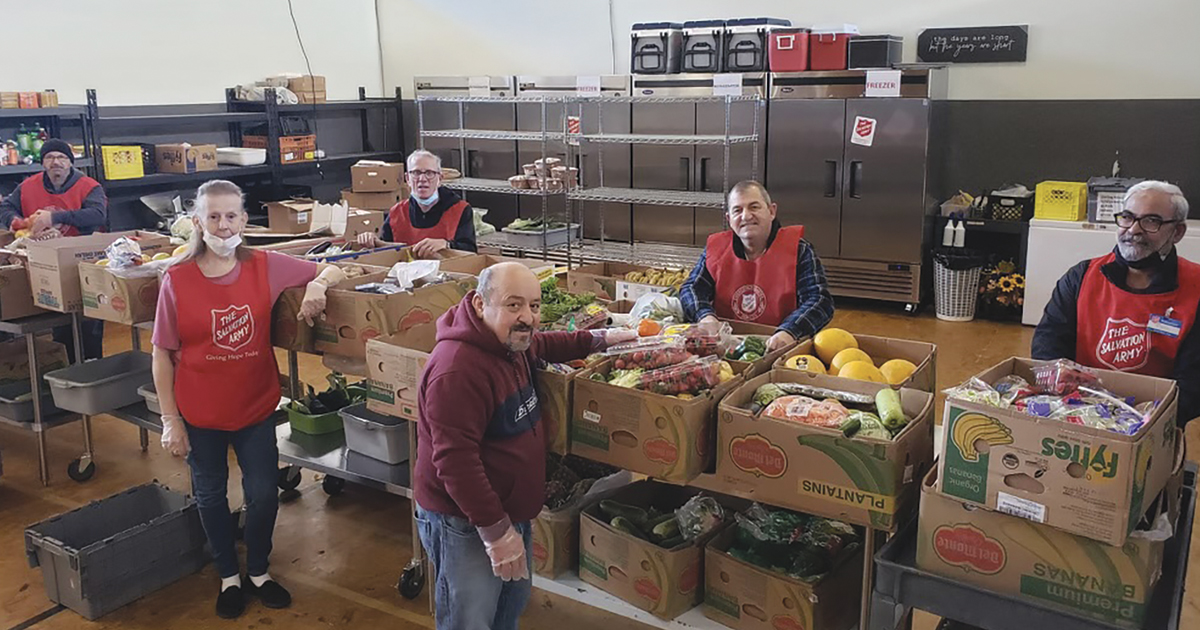A food reclamation initiative in Surrey, B.C., is saving money and the environment, while also providing food and essentials to people in need. A ministry of The Salvation Army’s Surrey Community Church, the initiative has diverted 48,000 kilograms of food from landfills in its first year.
"It’s win-win,” says Major Glynden Cross, corps officer. “We are always looking at ways to save money, but it’s also creation care."
The initiative is a partnership with a local No Frills store, which provides food and other goods to the Army on a weekly basis. Then, a team of four staff and 15 volunteers “glean” the goods, setting aside food that is still good to eat. About 81 percent of what the Army receives falls into that category and is distributed to clients.
The program not only supplies food and essentials for the Army’s ministries in Surrey, but also provides goods for five additional ministry units in the Lower Mainland and some non-Army shelters. “It’s a big operation,” says Major Diane Cross, corps officer.
After the food is distributed to clients, around 15 percent of what is donated is passed on to farmers; only four percent of the food is composted. Major Glynden works diligently to find homes for the farm-bound food, to keep that composting percentage low. As part of this food reclamation initiative, the Army has built relationships with various farms, including an equine therapy farm that rescues racehorses.
"It’s closing the loop on our food, going from farm to table to farm—and, in that case, farm to table to farm to mental health awareness,” says Major Diane.
Another unexpected benefit of the food reclamation initiative is seen among the volunteers. “The volunteers that come to us are usually ESL, so as they’re gleaning, they’re also learning English food words and increasing their vocabulary,” notes Major Diane.
While the program began with oneNo Frills, the Army is in the process of onboarding a second store and has a third wanting to get involved. The ministry unit recently received funding for a new truck, which will help the program expand.
“As The Salvation Army, one of our positional statements says that it’s imperative that we take care of our environment, and so that’s our goal,” says Major Glynden.
This story is from:










Leave a Comment